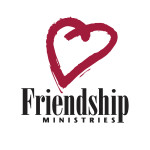The 5 Stages did not come about by accident. The folks who have contributed to this movement are influenced (and some even write) the books and content we link to here. We hope these resources will help you better understand the 5 Stages and prepare to change attitudes toward disabilities in your community.
 Stephanie Hubach Stephanie HubachSame Lake, Different Boat When the church attempts to function without all of its parts, the body of Christ becomes disabled. Same Lake, Different Boat is a transformational work–designed to renew our minds to think biblically about disability in order that our lives, our relationships, and our congregations might wholly reflect Christ.
|
 Barb Newman Barb NewmanGLUE Training Manual The G..L.U.E. Training Manual covers the G.L.U.E. process and includes the tools and resources to assist a church in discovering how people with disabilities can be included in these communities. The G.L.U.E. Training Manual contains everything a church needs to complete the process on their own.
|
 Mark Stephenson and Terry De Young Mark Stephenson and Terry De YoungInclusion Handbook Mark and Terry lead the “Disability Concerns’ efforts in two evangelical denominations and collaborated on this practical handbook. Knowing the particular disability a person lives with will help churches better to understand and help that person, but people are individuals with complex needs, gifts, joys, challenges, and interests. As advocates for people with disabilities, we must encourage our churches to focus on people and relationships, and not to be overly concerned with labels. This handbook emphasizes the importance of developing relationships and encouraging everyone in your congregation to use their gifts for God’s glory. |
 Erik Carter Erik CarterIncluding People with Disabilities in Faith Communities Perhaps the most practical guide on how to include people with disabilities in religious communities. Erik Carter’s interest in this topic has been an abiding part of his research, and he is one of the leaders in discussion inclusion and faith. This book addresses how faith communities, service providers, and families can work together to support the full participation of individuals with disabilities in the faith community of their choice. Topics include: rationale for including and supporting people with disabilities within a faith community; the importance of collaboration among faith communities, service providers, families, and individuals with disabilities to establish and maintain supports; specific ideas for including individuals with disabilities and for developing a network of religious groups, service providers, and families to make faith communities more inclusive.
|
 Friendship Ministries Friendship Ministries
Friendship Ministries works to empower churches – and the Church – to share God’s love with people who have intellectual disability and to enable them to become an active part of God’s family. Our non-profit ministry is international and inter-denominational. It provides churches with a model for disability ministry, curriculum, consultation, and training.
|
Amazing Blogs
Making Us Whole
Disability Matters
Ellen Stumbo
The Network – Disability Concerns
Thin Places – Faith, Family & Disability
Gillian Marchenko
Church 4 Every Child
Special Needs Parenting
Other Helpful Websites
Disability Concerns Facebook page
Disability Concerns (Christian Reformed Church)
Disability Concerns (Reformed Church of America)
CLC Network
Other Great Books
From Brokenness to Community
In the Name of Jesus
Dancing with Max
Sunshine Down
In the Name of Jesus
Life of the Beloved
Adam